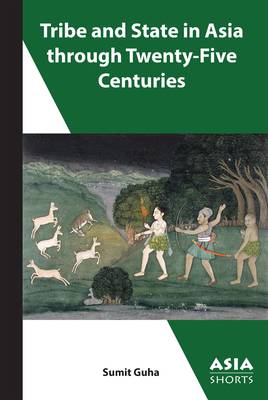
- Afhalen na 1 uur in een winkel met voorraad
- Gratis thuislevering in België vanaf € 30
- Ruim aanbod met 7 miljoen producten
- Afhalen na 1 uur in een winkel met voorraad
- Gratis thuislevering in België vanaf € 30
- Ruim aanbod met 7 miljoen producten
Zoeken
€ 27,95
+ 55 punten
Omschrijving
'Tribe' is one of the oldest words in Western languages. It has now globalized. Discourses in and on Asia frequently employ the label 'tribe' as a loan-word or in an Asian-language equivalent. This may be positive, used to market crafts and fabrics; it may be neutral, used in legal and administrative practice and in conflict zones, or it may be a pragmatic descriptor of a social organization and military capacity. The name has persisted through fifty years of academic denunciation of its emptiness. This book analyzes how the word 'tribe' has morphed and spread through the centuries. It goes behind the label to bring out the social, military and environmental settings that gave it its various meanings. Sumit Guha thus offers non-specialist readers an overview of 17 million sq. miles through two thousand years to the present.
Specificaties
Betrokkenen
- Auteur(s):
- Uitgeverij:
Inhoud
- Aantal bladzijden:
- 156
- Taal:
- Engels
- Reeks:
Eigenschappen
- Productcode (EAN):
- 9780924304958
- Verschijningsdatum:
- 2/08/2021
- Uitvoering:
- Paperback
- Formaat:
- Trade paperback (VS)
- Afmetingen:
- 152 mm x 229 mm
- Gewicht:
- 222 g

Alleen bij Standaard Boekhandel
+ 55 punten op je klantenkaart van Standaard Boekhandel
Beoordelingen
We publiceren alleen reviews die voldoen aan de voorwaarden voor reviews. Bekijk onze voorwaarden voor reviews.











